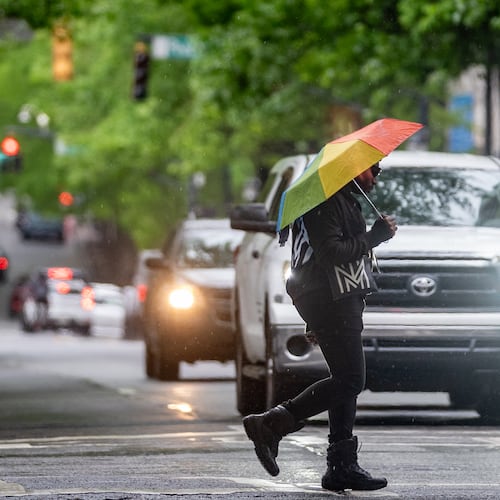Roswell approved a lower property tax rate for this year’s bills, but officials disagree on whether residents will still see a higher tax bill.
During a Monday meeting, City Council approved a property tax rate of $4.71 per $1,000 of a home’s appraised value, a 4.8% decrease from the 2020 rate of $4.95.
The six council members were evenly divided on how much the rate should decrease, requiring the mayor to break the tie at an Aug. 30 meeting.
Even with the approved lower rate, residents could have a higher tax bill because of the increase in the value of their property, Councilwoman Christine Hall told The Atlanta Journal-Constitution Thursday.
Hall said that an even lower rate could have ensured residents’ tax bills would not increase.
Mayor Lori Henry cast the deciding vote in favor of the new tax rate and voted along with councilmembers Matthew Tyser, Marie Willsey and Matt Judy.
Hall and councilmembers Mike Palermo and Marcelo Zapata voted against the rate after calling for a greater decrease. In meetings leading up to the Aug. 30 vote, they said lowering the rate all the way down to the “rollback rate,” or $4.58 per $1,000 of appraised value, would ensure bills do not rise.
Georgia law requires cities and counties to calculate a rollback rate each year when the values of taxable property are reassessed. The rollback rate takes inflation into account and is intended to keep residents’ property taxes the same, even if the values of their homes rise.
The state law considers any tax rate above the rollback rate to be a tax increase.
“Although I am certainly happy that this council is interested in reducing the millage rate, I am disappointed because it did not lower it enough,” Palermo said before voting. “... When we do not reduce it to the rollback rate, it is a tax increase and that is something that I do not think is justified for taxpayers right now.”
The approved tax rate of $4.71 is the lowest since 1988, officials said. It was proposed by city staff after Roswell learned the increase in property values was more than expected. According to a City Council presentation by Finance Director Ryan Luckett, the gross value of the city’s tax digest is 5.8% higher than 2020 at $6.56 billion and that includes $600,000 more than officials had calculated into the city budget. The tax digest is the value of all properties in the county, residential and commercial.
The lower tax rate was suggested because of the unexpectedly robust growth of the digest, Luckett said during public hearings.
A homeowner with a property that has a fair market value of $450,000 would pay $849 in city taxes compared to $892 under the previous rate, according to the city.
Under the new, lower property tax rate, Roswell estimates the city will collect $60,000 less in property taxes this current fiscal year compared to last year, resulting in a total of $26.6 million.
City Council approved a $150 million budget last spring, that Hall, Palermo and Zapata have been critical of.
“We proposed reductions during the budget process that, had they been adopted, would have provided the opportunity to lower taxes for the residents,” Hall said.
Friday, Tyser said he supported the new rate because it matches the budget, which was passed before the new tax rate was set. Assessed home values in Roswell are not allowed to increase by more than 3% per year, he added.
“We dropped the rate 4.8%,” Tyser said. “I would not expect an individual homeowner to pay more (than last year).”
About the Author
The Latest
Featured



